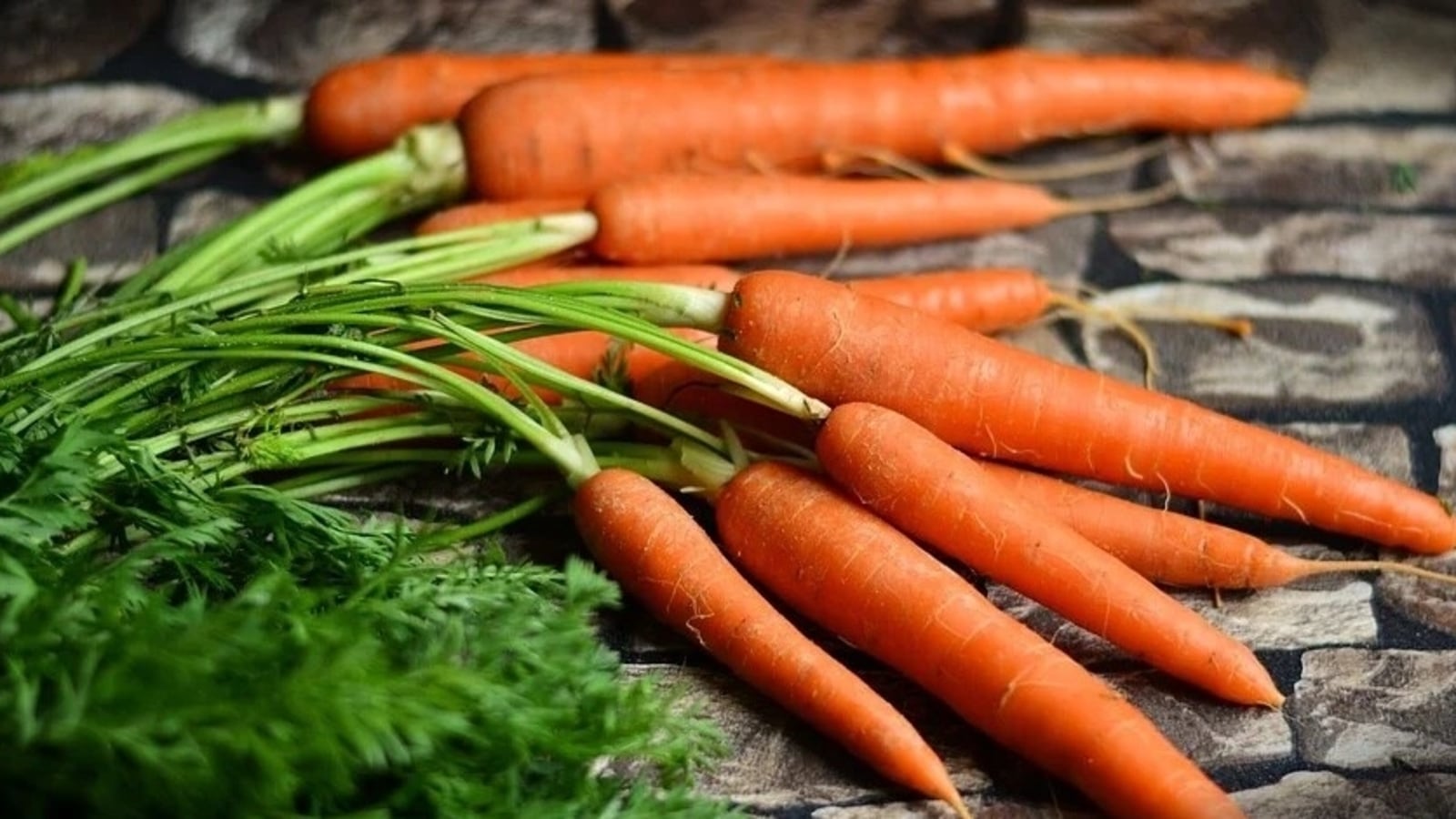I’m glad you’re here. I’ll discuss “Are Carrots High in Potassium” in this article. I sincerely hope you find this information to be useful. Carrots are a popular vegetable, but are they high in potassium? Read on to discover the truth about carrots and potassium.
Introduction
According to me, a versatile vegetable, carrots🥕 can be juiced, cooked, or eaten raw. They are frequently lauded for having a high concentration of beta-carotene, which the body uses to make vitamin A, which is essential for good vision. But how much potassium do they contain? Potassium is a necessary mineral that is critical to numerous body processes, such as controlling blood pressure and ensuring enough hydration. In this post, we’ll examine some crucial details concerning this vitamin and how it affects our health, as well as the issue “Are carrots🥕 high in potassium?”
What is Potassium?
A mineral called potassium is necessary for a variety of biological processes. It is an electrolyte, which means it carries an electrical charge that aids in controlling the body’s fluid balance. Additionally essential for good blood pressure levels and muscle contractions, particularly those of the heart, is potassium.
Are Carrots High in Potassium : Watching this video
Why is Potassium Important?
Our health in many different ways depends on potassium😀. Here are some justifications for why it’s crucial to have adequate potassium in our diets:
- Blood pressure is regulated by potassium😀, which aids in lowering blood pressure by relaxing blood vessel walls.
- Potassium is necessary for proper heart❤️ function, including regulating heartbeat and avoiding arrhythmias. This mineral supports heart health.
- Promotes strong muscles: Potassium is necessary for cardiac muscle contractions and aids in preventing cramping and wasting away of the muscles.
- Supports bone health: By boosting bone density, potassium may help lower the incidence of osteoporosis.
Are Carrots High in Potassium?
Although they are not the best source, carrots🥕 do contain some of the mineral potassium. Here are some important details regarding carrots🥕’ potassium content:
- About 230 milligrams of potassium can be found in a medium-sized carrot.
- This quantity is equivalent to around 5% of the potassium daily value (DV).
- The potassium content of spinach, sweet potatoes🥔, and avocados is also higher than that of other vegetables.
- Carrots🥕 are low in calories, high in fiber, and packed with other vital nutrients, so they are still a nutritious addition to any diet.

Other Sources of Potassium
There are numerous more items you may eat if you want to enhance the amount of potassium in your diet. Some of the best sources of potassium are listed below:
- Sweet potatoes: A medium-sized sweet potato🥔 has a potassium content of roughly 542 mg.
- Spinach: 840 milligrams of potassium are included in one cup of cooked spinach.
- One medium-sized avocado has around 708 milligrams of potassium in it.
- Bananas🍌: A medium-sized banana has 422 mg of potassium in it.
- Cooked salmon has a potassium content of about 534 mg per three ounces.
FAQs
A: Carrots🥕 contain a reasonable quantity of potassium, while not being the best source of this necessary mineral. 230 mg of potassium, or about 5% of the daily dose (DV) for potassium, may be found in a medium-sized carrot🥕.
A: Healthy sources of potassium include spinach, sweet potatoes, and avocados.
A: For adults, a daily potassium intake of 2,500–3,000 mg is advised.
A: Hyperkalemia, a condition caused by having too much potassium, is indeed conceivable. People with kidney problems or those taking particular drugs are more likely to experience this. It is uncommon to consume too much potassium through food alone, though.
A: potassium deficit can cause muscle cramps, weakness, and an erratic pulse.
A: Potassium is essential for maintaining correct hydration levels, controlling blood pressure, and promoting the health of the heart and muscles.
A: Healthy sources of potassium include seafood, dairy products, and fruits.
Additional FAQs of Are Carrots High in Potassium
A:Yes, you can receive enough potassium from your diet alone, especially if you eat a range of foods that are high in the mineral.
A: You can reduce high blood pressure levels by increasing your potassium intake.
A: Potassium is crucial for avoiding cramps and fatigue in the muscles.
A: The easiest approach to improve your potassium consumption is to eat a range of K-rich foods, such as sweet potatoes, spinach, and avocados.
A: Potassium supplements should only be taken under the guidance of a healthcare professional because excessive quantities can be harmful.
A: Those with kidney illness or those on specific drugs should limit their potassium intake. Before boosting your potassium consumption, it’s crucial to consult with your doctor.
A: By boosting bone density, potassium may help lower the incidence of osteoporosis.
A: Yes, excessive amounts of sodium and caffeine might prevent the body from absorbing potassium.
Conclusion
According to me, Carrots🥕 do contain a reasonable quantity of potassium, despite not being the best source of this crucial mineral. The easiest method to make sure you are receiving enough potassium in your diet is to eat a variety of potassium-rich foods, like sweet potatoes, spinach, and avocados. Numerous body processes, such as controlling blood pressure, ensuring correct hydration levels, and promoting good heart and muscle function, depend on potassium. If you are worried about how much potassium you are consuming, talk to your doctor. They can help you create a plan to make sure you are receiving enough of this crucial nutrient.